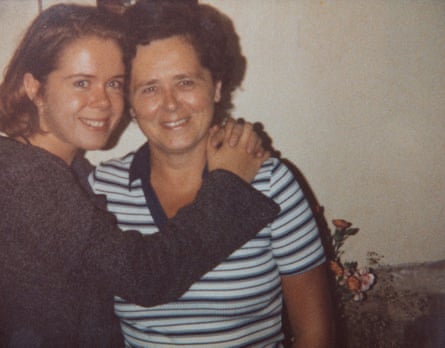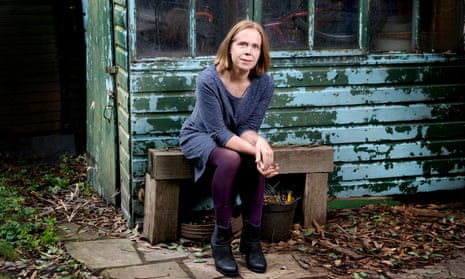My mother opened her front door a crack and peered at me suspiciously. “What?” she asked.
“Entertainment’s arrived,” I said, smiling.
Her mistrust turned to delight. “A sing-song?” She chivvied me in. “No one told me you were coming.”
She had been told. Many times. But vascular dementia and Alzheimer’s disease had recently robbed her of the ability to retain new information. A lot of old information was vanishing, too. Like the fact I was her daughter. Or that my arrival meant my dad was about to get a much-needed break from being her full-time carer.
“I’ve got a song book.” She thrust it at me as we settled on the sofa. “Let’s do one from here.”
Then my dad appeared in the doorway. “Go away,” she told him. “We’re singing.”
He smiled, relieved, and sidled out.
I crossed my fingers as I heard his car rev up. How long would I last this time? My record was 40 minutes. Forty! I felt ashamed that I couldn’t keep my own mother occupied for longer. The previous week she had left the house in slippers when she realised my dad had gone. It had been raining and she wasn’t wearing a coat, but she wanted her husband, and no assertion that he would be back soon would contain her. She knew I was following and kept turning around to hiss at me, “I don’t need you. You can go.” There were roads and cars and people were staring. We were both in tears by the time I gave in and called my dad to rescue us.
It was only recently that she would let me inside the house at all. She used to bang on the window when she saw me outside. When I rang the bell, she would hide behind the curtains. It wasn’t just me – no visitors were welcome. Her self-assurance and agency were being whittled away, along with her memories.
This particular day we managed 20 minutes before she slapped the song book shut and glared at me. Distraction sometimes helped, so I grabbed the nearest framed photo and shoved it at her. “You and Dad, look.”
I thought I was about to be told to leave things alone, to clear off. But she smiled. “My wedding day.”
It wasn’t. It was an ancient picture of my parents swimming in the sea. But I listened, rapt, as Mum told me a story. She had been sitting on the beach with her sisters, she said, when a handsome man walked by and fell instantly in love with her. He proposed and she accepted. A handy vicar conducted the ceremony, then the newlyweds went swimming. “My sisters were jealous” – Mum tapped the photo proudly – “because it was my wedding day.”
And off we went again.
When the story had run twice more, I held up a different photo. She shook her head. Favourite trinkets were similarly dismissed. But some objects resonated. The basket of dead daffodils was her prize for being the world’s best gardener. The kitten in the painting took her on boat rides. The baby torn from a magazine was her newly adopted son. The shiny paper tacked to the wall? She had invented that ...
My father got hours to himself that day. It was a miracle. He was amused when I told him how. He said the swimming photo had been taken on their honeymoon, so had its basis in reality. But the other stories were harder for him to find truth in.
I didn’t care about veracity. Better than truth, I had found a key. My mother didn’t need entertaining; she needed to entertain.

Dementia had robbed her of confidence. She often couldn’t recall the simplest thing. She was no longer able to help with tasks she had once been in charge of. She couldn’t go where she wanted, do what she wanted or even eat what she wanted. She was proved wrong over and over. But, as a storyteller, she had control. She could create new worlds, promote herself to heroic protagonist and demand we acknowledge it.
It wasn’t easy. As time passed, my father became uncomfortable with her repertoire of “fairytales”. Monty Don had never turned up to marvel at her garden – no, that was ridiculous. The Queen hadn’t come for tea, either, or asked my mother to care for orphaned babies. Engelbert Humperdinck was not my mum’s childhood friend and they had certainly never cycled around the UK doing concerts together.
“What do you know?” she would snap at him. “Were you there?”
“Well, no,” he would snap back, “but neither were you!”
His longing for truth came with the territory. My parents had been together a lifetime and their shared experiences were being replaced by fantasies. Where was my dad in her stories? Nowhere. Dementia robs carers, too.
As Mum’s illness progressed, gaps appeared in the narratives. Details were omitted. Words vanished. She used to know the name of every plant, but now when she talked of gardens she simply grew “flowers”. Anything with more than two legs was an “animal” and anything with wings was a “flim fly”.
She had a mini stroke and some of her less entrenched stories disappeared completely. We were reduced to call and response for those that remained. I would hand her the swimming photo and say, “What a handsome man,” and she would repeat the line. I would say, “What jealous sisters,” and she would laugh while I demonstrated front crawl across the lounge. An entire plot, understood by both of us, evoked in limited words and gestures.
She had a fall and was hopitalised. She didn’t know where she was or understand what was happening. She was terrified of the nurses with their plastic gloves and aprons. She pulled out her tubes, resisted sleep, shunned meals. I sat by her bed and tried to get her back to the place where her stories lived, but she wouldn’t go there. It seemed she had to keep her vigilance in the real world.
She had a massive stroke and lost all speech, along with her swallow reflex. Not only would she never talk again, but she would struggle to eat and drink. The race was on to get her out of hospital and into a place where she could die with dignity, where her family could be with her around the clock and the staff had specialised training in dementia.
It took longer than it should to find such a place. The day she moved into the care home, we brought in all the objects she loved. We decorated her room with tinsel and lights, made a loop tape of her favourite songs and pointed her bed to the window so that she could see flim flies.
My dad hoped she would make it to Christmas. I hoped she wouldn’t need the drugs in the fridge – ones with her name on them in case she got scared as she felt her body shutting down.
I visited whenever I could. I was looking for something, wanting something from her, and I couldn’t say what it was. I was supposed to be writing a book, preparing for Christmas, looking after my kids. The care home was miles away and took hours to get to. When I got there, she was usually asleep. Even when she had her eyes open, she looked inwards. I missed her.
Three days before she died, I walked into her room and she was awake. She smiled and waved me over with her good hand. I held it to my cheek, wanting her to feel the weather on my skin, to know how lovely the frosty morning was. There were so many things I wanted her to know, in fact. She was absolutely present and I longed to wrap up every good and bad thing that had ever happened between us and lay it on her lap.
But that wasn’t possible, so I did the only thing that was.
“Entertainment’s arrived.”
She positively twinkled.
I used simple sentences and repetition. She cycled, sang, swam, saved orphans, grew wonderful flowers in prize-winning gardens and was admired and thanked by everyone.
Not lies, but emotional truth. Here you are, Mum – your stories. I see you. You’re important.
At her funeral, we asked people to share memories. They came spilling. My mum was at the centre of every single one. She would have loved it.

Comments (…)
Sign in or create your Guardian account to join the discussion